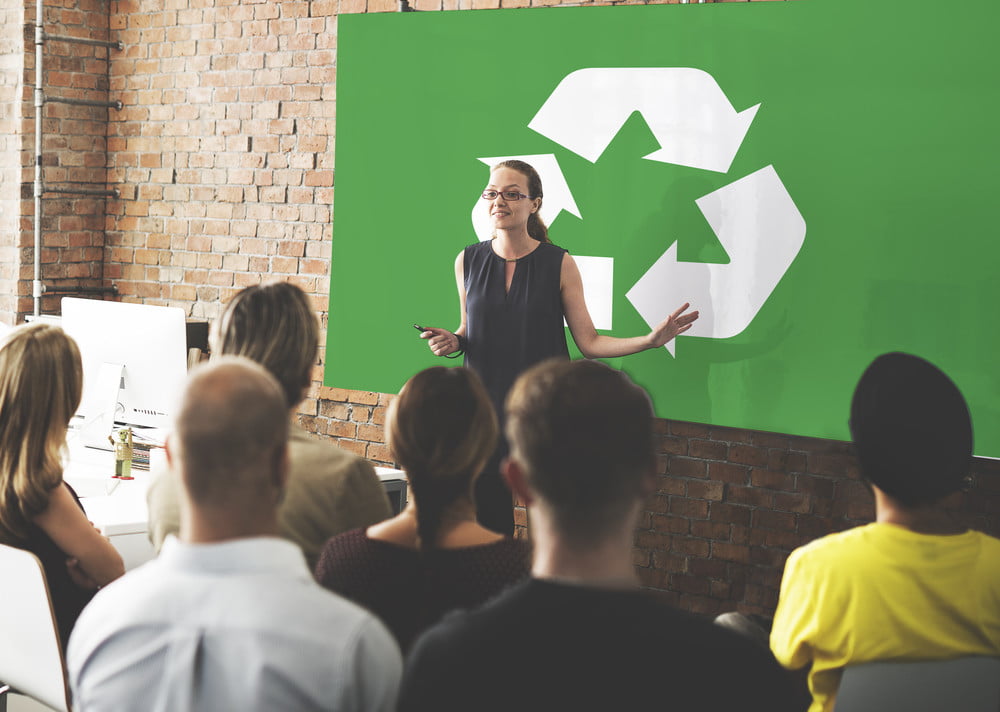

Environment
How Retailers Can Break Bad Habits to Create an Eco-Friendly Business
Are you a retailer who is afraid to “go green” because you have to part ways with environmentally unsustainable habits? Don’t worry – breaking these bad habits is actually the best thing you can do to reduce your carbon footprint while maintaining traditional retail operations that have always worked for you. And you can always improve upon those too while going green.
Yes, you have to choose eco-friendly options from vendors — or switch vendors altogether if they do not offer those options. Yes, you have to retrain your staff – and your customers – to change their habits regarding plastic bag use. And yes, you have to rewire your own brain as far as just throwing out slightly damaged or unsold merchandise.
But first, you have to consider what your purpose is as a retailer – and where you want to be in the long run for up-and-coming generations. You have to set the values and goals of your retail business. Instead of concentrating your attention on your products or the marketing strategies you implement, try to understand the main purpose of your business. Since there are so many similar retailers on the market, what fuels your existence? Why should you struggle to compete with other already successful businesses?
Narrow your customer focus
Once you’ve answered these questions, then you can move on to the most important factor in your business — the customer. After you identify your target audience, you can start building a vibrant niche. Even more, you have the right to be selective, meaning that you can focus more on those people who pay attention to the latest trends and are willing to pay full price for a high-quality — and eco-friendly — product.
Now we can get into the logistics of truly rebuilding a green retail operation.
Develop a waste management program and work with professionals
The retail industry produces great amounts of waste, representing a huge problem both for the environment and for your credibility as a business owner. This is especially due to significant fines received by prominent retailers over the last years for hazardous waste violations.
Fortunately, there are many ideas that you can put into practice for reducing the amount of waste generated by your retail store, but you cannot do it alone. For this reason, reaching out to compactor manufacturers and suppliers as well as to your customers becomes imperative. Miltek is one of many companies that help retail businesses and other industries optimize the waste handling process.
Waste management does not have to be daunting if you work with the right professionals. And little things like encouraging your customers to opt for reusable shopping bags will truly make a difference. You can even offer a small prize or reward to those customers who follow your advice.
Persuade vendors to use recyclable materials and customers to be environmentally
Excessive packaging represents one of the main causes that lead to whopping amounts of waste across the world. Train your employees to think green. Instead of having them give bags to customers who don’t need them, you should instruct your employees to ask first and then provide the necessary item when the client makes a purchase. Otherwise, most of those bags offered will end up in the trash.
Discuss environmental options with your vendors as well. You have nothing to lose if you suggest them to use recyclable materials for packaging. Placing recycling bins strategically inside your store will give customers the option to throw away waste responsibly. If you have slightly damaged merchandise, don’t just dispose of it right away. Instead, consider donating it, because there are lots of people out there who cannot afford paying for clothing articles or other goods. The same principle applies to items that your customers do not purchase.
Promote eco-friendly products and help employees adopt better habits
Make sure that you share with your staff and your loyal customers your actions and efforts of controlling the impact of your business on the surrounding environment. Overlooking this detail means that your employees will not know how and what to reuse and recycle. You should not force them to adopt these habits at work. Instead, you should persuade them to apply these rules in their spare time as well, whether they are at home or traveling across the country. Since you are promoting your products, you should focus more on those products made from recycled materials. Customers living an eco-friendly life will appreciate it.
Remember, if you think small, you remain small. Business development requires time, effort, patience, and money, so make sure that you allocate all these resources to business growth. You have to know how your competition manages to stay a step ahead of you — and they might be quite a few steps ahead of you in the eco-friendly game.
































